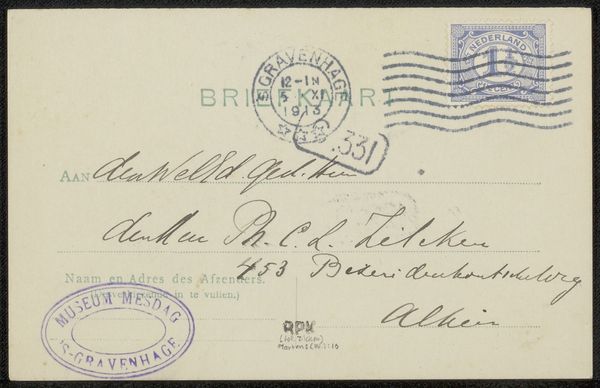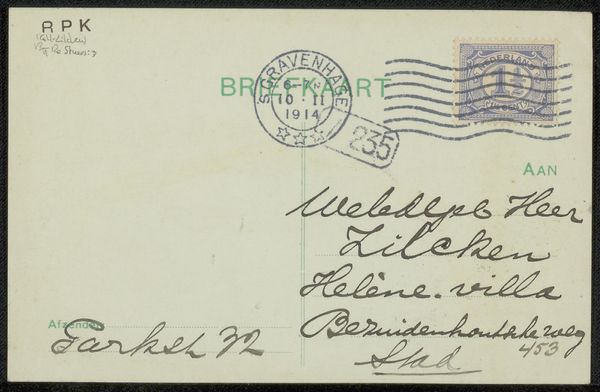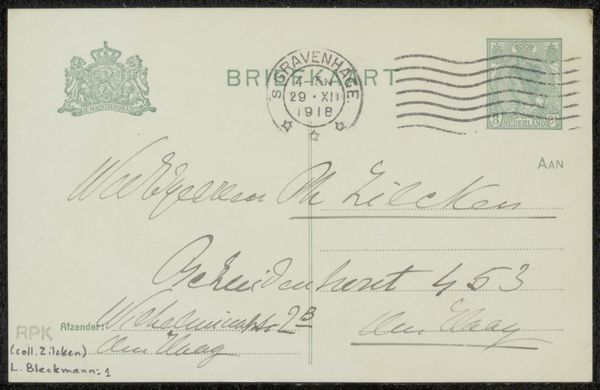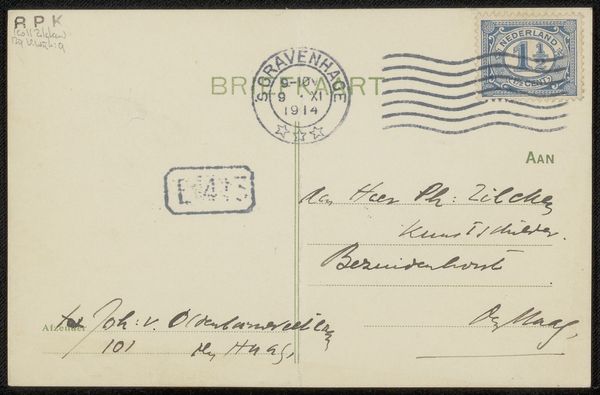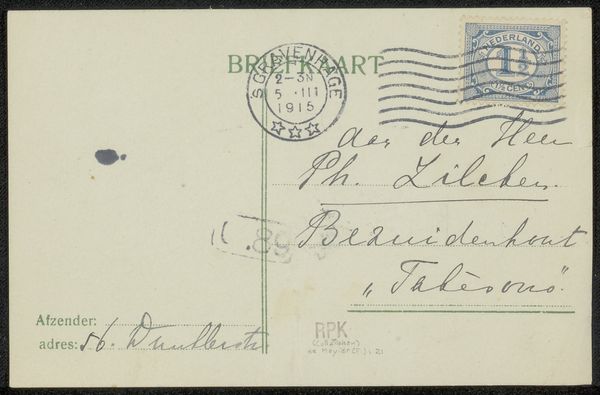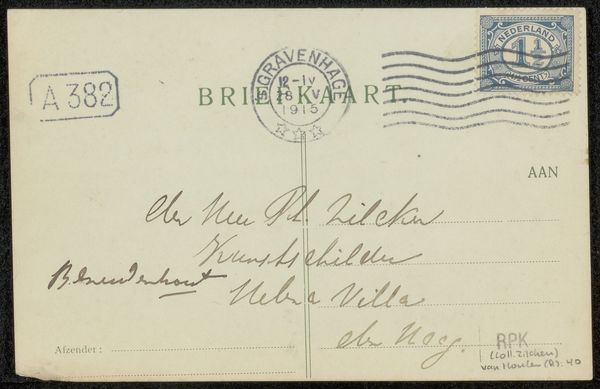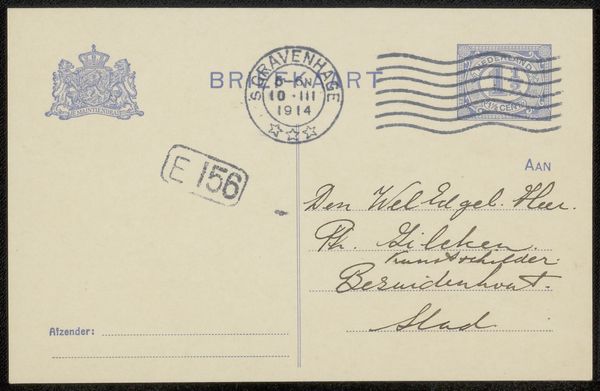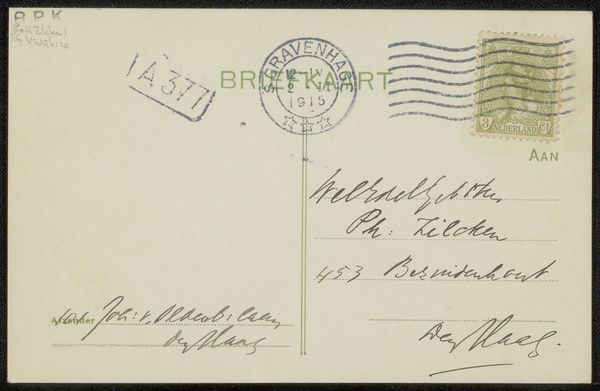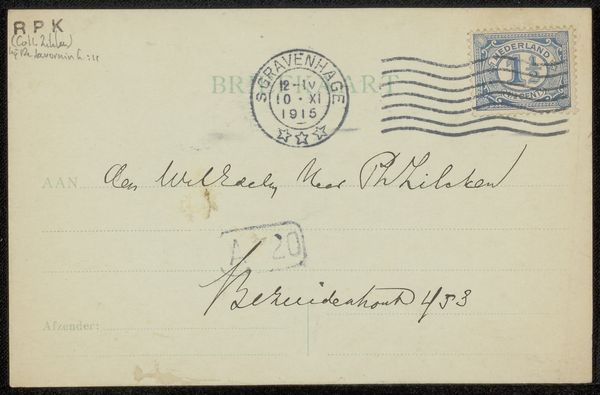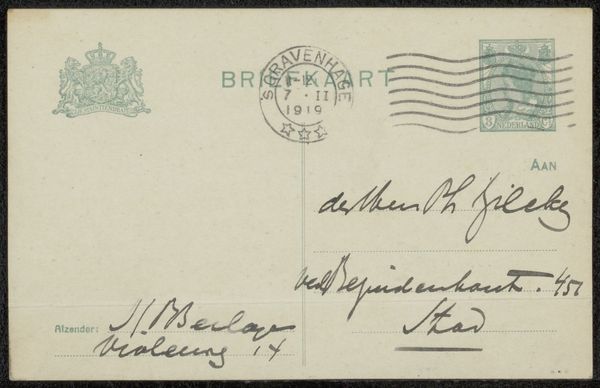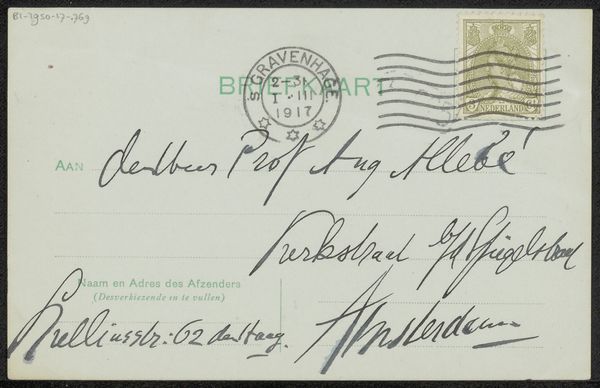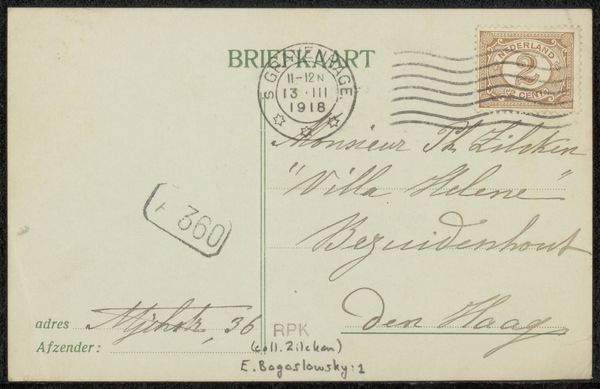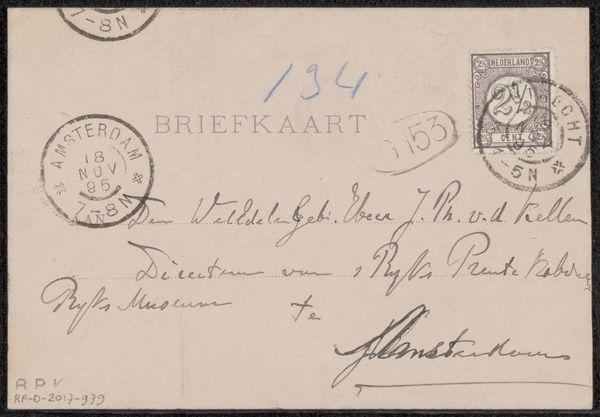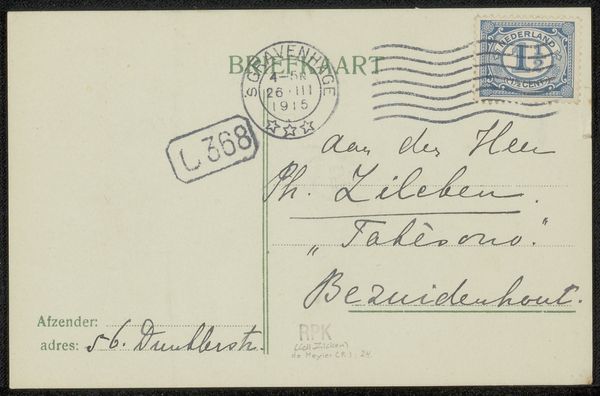
drawing, paper, ink, pen
#
portrait
#
drawing
#
script typography
#
hand-lettering
#
hand drawn type
#
hand lettering
#
paper
#
personal sketchbook
#
ink
#
hand-drawn typeface
#
ink drawing experimentation
#
pen work
#
sketchbook drawing
#
pen
#
sketchbook art
#
calligraphy
Copyright: Rijks Museum: Open Domain
Editor: Here we have Willy Martens' "Briefkaart aan Philip Zilcken," likely from 1914. It's a postcard addressed in beautiful, flowing ink on paper. It’s surprisingly intimate; seeing handwriting feels so personal. What stands out to you when you look at this? Curator: What intrigues me is the tension between the formal and the informal. It’s a postcard, a common means of communication, yet elevated by calligraphy, a practice steeped in tradition and associated with power and artistry. The date, possibly 1914, is key. World War I was about to erupt, disrupting social structures. Could this attention to script be a longing for a disappearing world, a way to maintain order in the face of chaos? Who were these individuals, Martens and Zilcken, and what was their relationship to the changing political landscape? Editor: That’s a fascinating reading. I hadn’t considered the pre-war context. Does the specific style of the script reveal anything further? Curator: Absolutely. The flourishes and elegant letterforms are not just decorative; they signal a certain class, education, and perhaps even a yearning for refined aesthetics amidst the rising tides of industrialization and social upheaval. How might their gender and social standing influence the intention and reading of the handwritten missive? Editor: It’s interesting how much a seemingly simple postcard can reveal about the cultural and political anxieties of the time. I see it differently now. Curator: Precisely! It's a reminder that even everyday objects can serve as powerful documents of social and historical complexities. Hopefully we see that connecting dots among art, history, and societal struggles reveals hidden realities.
Comments
No comments
Be the first to comment and join the conversation on the ultimate creative platform.
